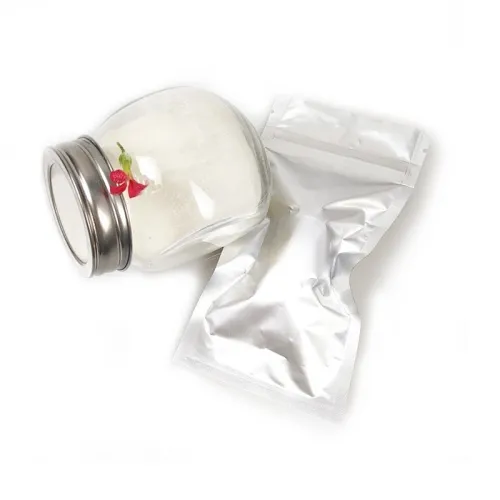Warning: Undefined array key "title" in /home/www/wwwroot/HTML/www.exportstart.com/wp-content/themes/1198/header.php on line 6
Warning: Undefined array key "file" in /home/www/wwwroot/HTML/www.exportstart.com/wp-content/themes/1198/header.php on line 7
Warning: Undefined array key "title" in /home/www/wwwroot/HTML/www.exportstart.com/wp-content/themes/1198/header.php on line 7
Warning: Undefined array key "title" in /home/www/wwwroot/HTML/www.exportstart.com/wp-content/themes/1198/header.php on line 7
- Afrikaans
- Albanian
- Amharic
- Arabic
- Armenian
- Azerbaijani
- Basque
- Belarusian
- Bengali
- Bosnian
- Bulgarian
- Catalan
- Cebuano
- China
- China (Taiwan)
- Corsican
- Croatian
- Czech
- Danish
- Dutch
- English
- Esperanto
- Estonian
- Finnish
- French
- Frisian
- Galician
- Georgian
- German
- Greek
- Gujarati
- Haitian Creole
- hausa
- hawaiian
- Hebrew
- Hindi
- Miao
- Hungarian
- Icelandic
- igbo
- Indonesian
- irish
- Italian
- Japanese
- Javanese
- Kannada
- kazakh
- Khmer
- Rwandese
- Korean
- Kurdish
- Kyrgyz
- Lao
- Latin
- Latvian
- Lithuanian
- Luxembourgish
- Macedonian
- Malgashi
- Malay
- Malayalam
- Maltese
- Maori
- Marathi
- Mongolian
- Myanmar
- Nepali
- Norwegian
- Norwegian
- Occitan
- Pashto
- Persian
- Polish
- Portuguese
- Punjabi
- Romanian
- Russian
- Samoan
- Scottish Gaelic
- Serbian
- Sesotho
- Shona
- Sindhi
- Sinhala
- Slovak
- Slovenian
- Somali
- Spanish
- Sundanese
- Swahili
- Swedish
- Tagalog
- Tajik
- Tamil
- Tatar
- Telugu
- Thai
- Turkish
- Turkmen
- Ukrainian
- Urdu
- Uighur
- Uzbek
- Vietnamese
- Welsh
- Bantu
- Yiddish
- Yoruba
- Zulu
Oct . 10, 2024 16:28 Back to list
natural xanthan gum a versatile organic thickener for food ...
Natural Xanthan Gum A Versatile Organic Thickener for Food
In the realm of food science, few ingredients have gained as much acclaim and versatility as xanthan gum. This natural polysaccharide, derived from the fermentation of sugars by the bacterium Xanthomonas campestris, has become an indispensable thickening agent, stabilizer, and emulsifier in various culinary applications. With its ability to enhance texture and improve product quality, xanthan gum is a popular choice among food manufacturers and home cooks alike.
One of xanthan gum's most remarkable qualities is its thickening capability. When dissolved in water, xanthan gum forms a gel-like consistency, which provides body and stability to liquids. This property makes it particularly valuable in products such as salad dressings, sauces, soups, and gravies, where a desirable thickness can elevate the overall sensory experience. Unlike traditional thickeners like cornstarch or flour, xanthan gum is effective in small quantities, allowing for a clean and smooth texture without altering the flavor of the dish.
Beyond thickening, xanthan gum plays a critical role in stabilizing emulsions, which are mixtures of oil and water that tend to separate. Dressings and mayonnaise often benefit from its addition, as xanthan gum helps maintain a consistent texture and prevents unwanted separation, ensuring a uniform product. This stabilization quality is also useful in ice creams and dairy products, where it prevents the formation of ice crystals, creating a creamy and smooth mouthfeel.
Xanthan gum is gluten-free, making it a favored ingredient in gluten-free baking. As more consumers move towards gluten-free diets, xanthan gum has become essential for mimicking the texture and elasticity that gluten provides in traditional baked goods. When added to gluten-free flour blends, xanthan gum improves the dough's ability to rise, resulting in softer and more palatable bread, cakes, and pastries. This ability to replicate gluten's function allows those with dietary restrictions to enjoy a wider variety of baked items without compromising on taste or texture.
natural xanthan gum a versatile organic thickener for food ...

The safety and acceptability of xanthan gum have also contributed to its popularity. Generally recognized as safe (GRAS) by the U.S. Food and Drug Administration (FDA), xanthan gum has no known adverse effects when consumed in moderation. It is also a vegan-friendly ingredient, making it suitable for a broad range of dietary preferences. This makes xanthan gum not only a useful ingredient in food preparation but also a dietary choice that aligns with various lifestyle choices.
In addition to its culinary applications, xanthan gum is being explored in various industries for its thickening and stabilizing properties
. In the cosmetics industry, it is often used in lotions and creams to enhance viscosity and provide a desirable texture. Pharmaceutical companies also utilize xanthan gum in suspensions and gels, taking advantage of its stabilizing traits.Despite the advantages, it is essential for consumers to understand how to use xanthan gum effectively. Overuse can lead to a slimy texture or an overly thick product, which may detract from the overall culinary experience. Best results are often achieved by starting with small amounts and gradually increasing as needed.
In conclusion, natural xanthan gum is a versatile organic thickener that has transformed the food industry. Its ability to enhance texture, stabilize emulsions, and provide gluten-free alternatives makes it a valuable ingredient for both manufacturers and home cooks. As we continue to explore and innovate in the culinary world, xanthan gum will undoubtedly remain at the forefront, shaping the textures and flavors of our favorite dishes for years to come.
Latest news
-
Certifications for Vegetarian and Xanthan Gum Vegetarian
NewsJun.17,2025
-
Sustainability Trends Reshaping the SLES N70 Market
NewsJun.17,2025
-
Propylene Glycol Use in Vaccines: Balancing Function and Perception
NewsJun.17,2025
-
Petroleum Jelly in Skincare: Balancing Benefits and Backlash
NewsJun.17,2025
-
Energy Price Volatility and Ripple Effect on Caprolactam Markets
NewsJun.17,2025
-
Spectroscopic Techniques for Adipic Acid Molecular Weight
NewsJun.17,2025

